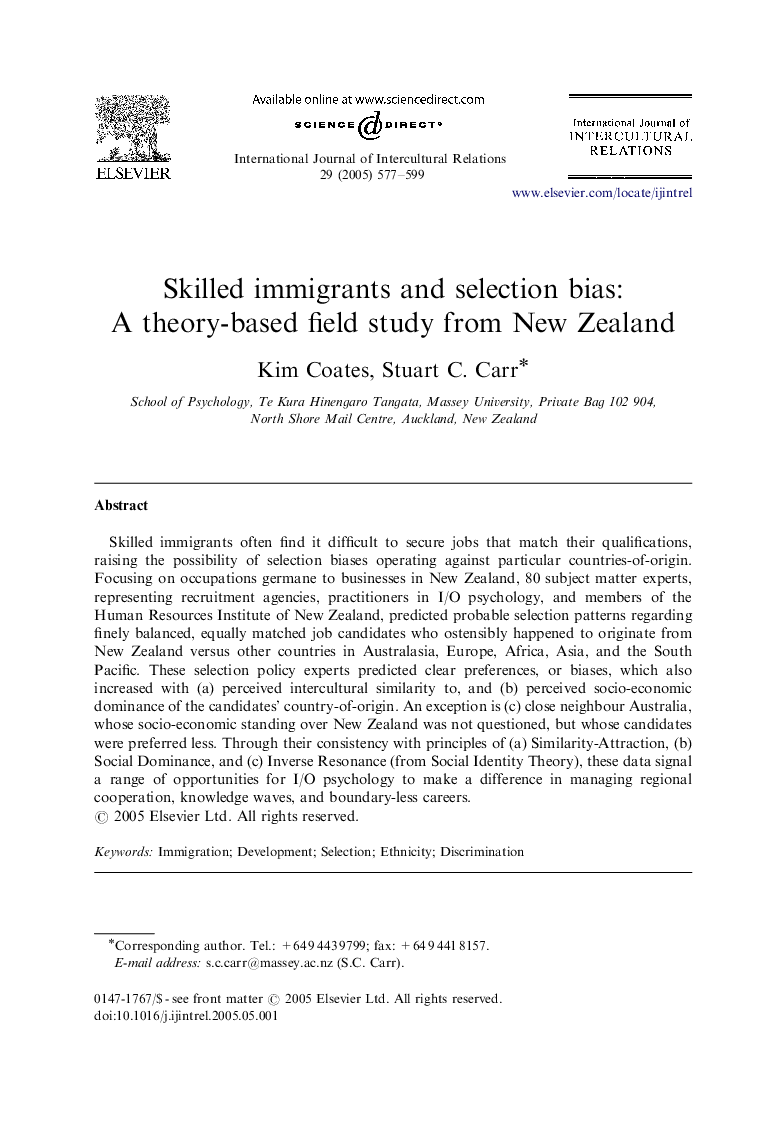| Article ID | Journal | Published Year | Pages | File Type |
|---|---|---|---|---|
| 9723826 | International Journal of Intercultural Relations | 2005 | 23 Pages |
Abstract
Skilled immigrants often find it difficult to secure jobs that match their qualifications, raising the possibility of selection biases operating against particular countries-of-origin. Focusing on occupations germane to businesses in New Zealand, 80 subject matter experts, representing recruitment agencies, practitioners in I/O psychology, and members of the Human Resources Institute of New Zealand, predicted probable selection patterns regarding finely balanced, equally matched job candidates who ostensibly happened to originate from New Zealand versus other countries in Australasia, Europe, Africa, Asia, and the South Pacific. These selection policy experts predicted clear preferences, or biases, which also increased with (a) perceived intercultural similarity to, and (b) perceived socio-economic dominance of the candidates' country-of-origin. An exception is (c) close neighbour Australia, whose socio-economic standing over New Zealand was not questioned, but whose candidates were preferred less. Through their consistency with principles of (a) Similarity-Attraction, (b) Social Dominance, and (c) Inverse Resonance (from Social Identity Theory), these data signal a range of opportunities for I/O psychology to make a difference in managing regional cooperation, knowledge waves, and boundary-less careers.
Related Topics
Social Sciences and Humanities
Business, Management and Accounting
Business and International Management
Authors
Kim Coates, Stuart C. Carr,
